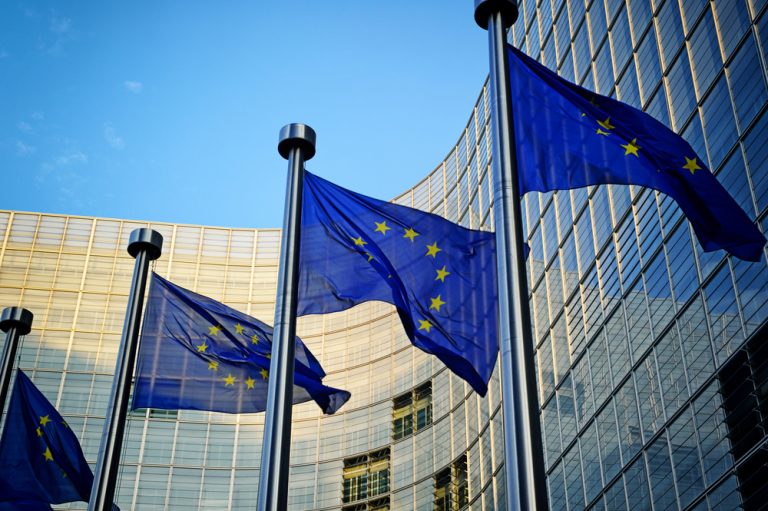
What key political events await the world in 2024
The year 2024, promises to be very rich in political events. At the very beginning of the year, on January 3, elections were held in Taiwan, which were won by the ruling pro-American party, once again extending the spiral of military and political tensions around the island. Not surprisingly, against the backdrop of the U.S.-China strategic confrontation, they turned out to be very scandalous and were remembered for mutual accusations of U.S. and Chinese interference in the electoral process, as well as a series of arrests of journalists and candidates for receiving foreign funding. In the end, however, the outcome can be considered quite logical and unfalsified, and the pre-election polls turned out to be very close to reality. The Democratic Progressive Party got about 40% and its candidate Lai Ching-Te became president, although the conventionally pro-China parties won a majority in parliament. Now peace is guaranteed until the U.S. elections in November, and then everything will depend on Biden’s or Trump’s future policy towards Beijing in 2025. However, despite the fact that the American elections, which are the main and most expected, but the electoral interest is far from limited to them. 2024 promises to be a successful year for right-wingers, nationalists and anti-globalists in many countries and in elections at all levels. The People’s Party of incumbent Prime Minister Narendra Modi is on its way to a third consecutive victory in the Indian elections, consolidating its position in Parliament and moving towards turning the country into a “great Hindu empire” from a state traditionally divided ethnically, religiously and politically. In Portugal, which after the collapse of the regime of the Dictator Salazar’s followers had almost “immunity from nationalism”, the right-wing populist right-wing Chega (Enough!) party, led by André Ventura, is growing in popularity. It came third in the parliamentary elections with 7.2%, behind only the traditionally strong Socialists and Social Democrats, and ahead of the more moderate liberal-conservative parties. Today, however, Chega’s rating already reaches 17%, and may well exceed even 20% in the new Portuguese parliamentary and European Parliamentary elections.
It is already obvious that in the June 2024 elections to the European Parliament, the bloc of the systemic right-wing Conservatives and Reformists will take the third place and the fourth place will go to the non-systemic right-wing Identity and Democracy group, which includes the French Rassemblement National, the Austrian Freedom Party and the Italian Lega. They will have to share the positions of the European Commissioners, which cannot suit the European liberals and will further aggravate the dysfunction of Brussels. As a result, the right-wing Euroskeptics expect to gain up to a third of the seats in the European Parliament, which will allow them to strengthen their positions and seize the initiative in European integration, in fact, turning it backwards. That is why almost all leaders of European countries are demanded by their patrons in the liberal establishment to somehow stop the strengthening of the right-wing in their countries, although it is unlikely to succeed against the backdrop of the growing systemic economic and cultural crisis, which is ruining the “welfare society”, making liberals known losers against the background of their radical right-wing and even left-wing opponents. But even more crises for Brussels than the pan-European elections, where liberals still have a margin of safety, may be the outcome of the vote in Austria, where the already mentioned Freedom Party, Euroskeptics, “far-right radicals” and “friends of Putin” have a good chance of winning. It is likely that the elections in neighboring Germany, where the Alternative for Germany will win in the Landtags of Saxony, Brandenburg and Thuringia, will also end with the victory of the nationalists, and even the fact that all other parties may be blocked against it will not change this fact and will even give the right-wing parties more confidence and popularity. In recent months, Alternative for Germany has for the first time become the second most popular party in the country. Its rating has significantly exceeded the level of support for the ruling Social Democratic Party, reaching 25%, compared to 12-14% for the Social Democrats. This is evidenced by the latest INSA polling data. The popularity is higher only for the opposition conservative bloc CDU/CSU, which is supported by 29-30% of voters. Other members of the ruling coalition Greens and liberals from the Free Democratic Party get only 10-11% and 5-6% respectively. And this is an excellent indicator that the growing popularity of the nationalists is already an irreversible phenomenon.

The exception may be the UK, where it is almost guaranteed that left-wing Labor will win, and Europhile Keir Starmer will replace the “right-wing” Rishi Sunak and try to bring the country back into the EU. But of course the key clash between the patriotic right and the liberal left will take place in Washington. Donald Trump, who has already secured admission to the primaries in the vast majority of states despite opposition from the “liberal justice system”, has already won in Iowa and New Hampshire, and it may not be long before the Republican Party’s highest council endorses him as its presidential candidate. But he will be even more active in creating problems with criminal cases, and a guilty verdict on the very eve of the elections cannot be ruled out. The situation in the U.S. will be very chaotic and unpredictable, as the recent events in Texas have shown, and the probability of an assassination attempt on one of the candidates or a major terrorist attack is quite high. In case Trump physically makes it to the election and doesn’t end up in jail, he will win against Biden or Harris, whichever of them the Democrats put up, given that his gap from both liberal candidates is consistently 3-4% both at the federal level and at the level of 8 key states such as Pennsylvania, Georgia or Michigan. Republicans, on the other hand, will obviously take a majority in the Senate, winning in Montana, Ohio and West Virginia. The Democrats will not accept this, so we can expect major riots and street mayhem, which liberals are used to solving all their problems by bypassing elections. In order to somehow raise their domestic ratings, Biden’s team will traditionally focus on foreign policy populism, and will actively send emissaries to Doha and Istanbul, trying to negotiate with Iran on the issue of the blockade of the Red Sea by the Houthis, which is hitting hard the American and European economies, which are already in deep crisis. Thus, we should expect that the U.S. Federal Reserve will start to rapidly lower the key rate, and the ECB and other central banks of Western countries will follow. This will help the U.S. to avoid recession, but not stagnation, while Europe is already firmly in recession with the threat of political destabilization in 2025, no matter what efforts are made to avoid such a development. And America will not have it easy either, because consumer prices in the U.S. in December for the first time in many months rose by 3.4% relative to the same month in 2022, although the target inflation rate of the U.S. Central Bank is 2%, which, ideally, should give a start to lowering the key rate.
The U.S. government has so far been successful in fighting inflation, even though it has regained its upward trend and tight monetary measures are losing their effect. A successful inflation factor for the U.S. economy is the situation on the oil market, where, despite the desire of OPEC+ to reduce oil production, its price over the past month even slightly decreased from $78 to almost $76 per barrel. The decline in inflation over the last year was influenced by the tight monetary policy of the U.S. Federal Reserve System. On February 1, the Fed, following a two-day meeting, announced a 25-basis-point rate hike to 4.5-4.75% per annum. Then it became the maximum since October 2007. Already on March 22, the U.S. Fed raised the benchmark interest rate by 25 basis points to 4.75-5%. On May 3, the Fed raised the key rate for the tenth time in a row by another 25 points to 5.25%. Against this background, investors and markets are already begging the U.S. financial authorities to stop further tightening of the monetary sphere in order to overcome the raging banking crisis. Having listened to them, the Fed has suspended the rate increase, which against the background of natural economic predisposition to the growth of inflation in the country has led to the restoration of its upward trend. Despite the current positive trends caused by energy market conditions, against this backdrop, it is possible that the Fed may continue to increase the rate again over time. In the opposite case, month-to-month inflation could again become a steady trend, which would hit Joe Biden’s ratings, precipitating a political crisis in the U.S. In fact, we have only described events that we, one way or another, expect to happen. And the last few years, starting with 2020, have always brought events and twists and turns that few expected. COVID-19, the new “Cold War” between China and the U.S., and the “hot war” in the Ukraine and Gaza Strip were a surprise and shock to many. And seeing the chaos into which the world is plunging, 2024 may be even richer in unexpected incidents that will upend the world order and are almost impossible to predict.

